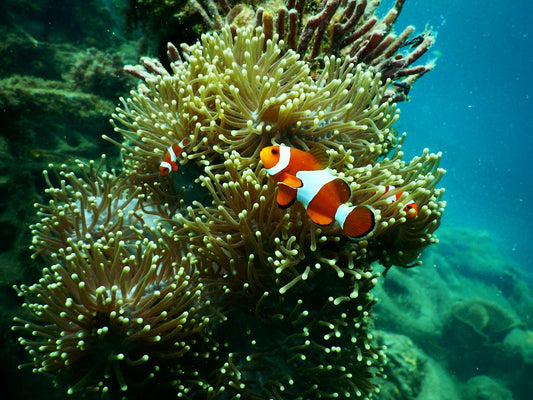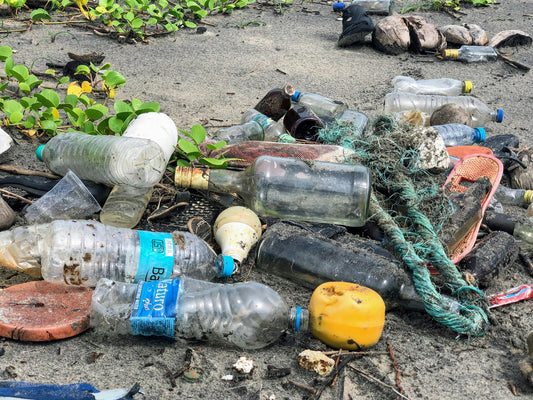Share
The recent U.N. biodiversity negotiations in Cali, Colombia, highlighted the significant role of global cooperation in addressing biodiversity loss. However, the United States, despite its substantial engagement in environmental discussions, remains a non-party to the biodiversity treaty, a status that sets it apart from other countries.
U.S. Non-Party Status:
The U.S. has not ratified the decades-old biodiversity treaty, despite its historical involvement in its crafting and negotiation. This status is reflected by the "non-party" badges worn by U.S. delegates, distinguishing them from the "party" badges of participating countries.
Substantial Engagement:
Despite its non-party status, the U.S. actively participates in biodiversity discussions, sends a delegation, allocates hundreds of millions of dollars for biodiversity initiatives, and undertakes its own environmental protection efforts.
Diplomatic Dynamics:
The U.S. finds itself on the diplomatic sidelines during decision-making processes, alongside other observers like advocacy groups and businesses. This is due to the need for allies to present proposed changes in wording, which can be a challenging process.
Environmental Initiatives:
The Biden administration is committed to protecting at least 30% of terrestrial and marine areas by 2030, aligning with the global 30x30 initiative. This commitment was highlighted by Mallory, chair of the Biden administration's Council on Environmental Quality, during a panel discussion.
Negotiation Challenges:
The negotiations involve contentious issues such as funding for biodiversity initiatives, especially for developing nations, and the establishment of a system for compensating countries for utilizing digital genetic data. The U.S. is actively engaged in these discussions but faces challenges in influencing the final agreements.
Business Sector Involvement:
The talks saw significant involvement from the business sector, with companies recognizing the need to engage with environmental issues. A new fund was established to generate approximately $1 billion annually for biodiversity conservation, with half earmarked for Indigenous peoples.
Indigenous Influence:
The conference concluded with notable achievements for Indigenous peoples, including the establishment of a permanent body to enhance their influence in negotiations. This move was hailed as a historic moment for Indigenous peoples, providing a platform for traditional knowledge to contribute to biodiversity conservation efforts.
U.S. Non-Party Status:
The U.S. has not ratified the decades-old biodiversity treaty, despite its historical involvement in its crafting and negotiation. This status is reflected by the "non-party" badges worn by U.S. delegates, distinguishing them from the "party" badges of participating countries.
Substantial Engagement:
Despite its non-party status, the U.S. actively participates in biodiversity discussions, sends a delegation, allocates hundreds of millions of dollars for biodiversity initiatives, and undertakes its own environmental protection efforts.
Diplomatic Dynamics:
The U.S. finds itself on the diplomatic sidelines during decision-making processes, alongside other observers like advocacy groups and businesses. This is due to the need for allies to present proposed changes in wording, which can be a challenging process.
Environmental Initiatives:
The Biden administration is committed to protecting at least 30% of terrestrial and marine areas by 2030, aligning with the global 30x30 initiative. This commitment was highlighted by Mallory, chair of the Biden administration's Council on Environmental Quality, during a panel discussion.
Negotiation Challenges:
The negotiations involve contentious issues such as funding for biodiversity initiatives, especially for developing nations, and the establishment of a system for compensating countries for utilizing digital genetic data. The U.S. is actively engaged in these discussions but faces challenges in influencing the final agreements.
Business Sector Involvement:
The talks saw significant involvement from the business sector, with companies recognizing the need to engage with environmental issues. A new fund was established to generate approximately $1 billion annually for biodiversity conservation, with half earmarked for Indigenous peoples.
Indigenous Influence:
The conference concluded with notable achievements for Indigenous peoples, including the establishment of a permanent body to enhance their influence in negotiations. This move was hailed as a historic moment for Indigenous peoples, providing a platform for traditional knowledge to contribute to biodiversity conservation efforts.
We hope you enjoyed this article. Please feel free to leave a comment below if you want to engage in the discussion.
If you want to read more like this, make sure to check out our Blog and follow us on Instagram. If you are interested in truly sustainable products, check out our Shop.
Check out the original source here.








